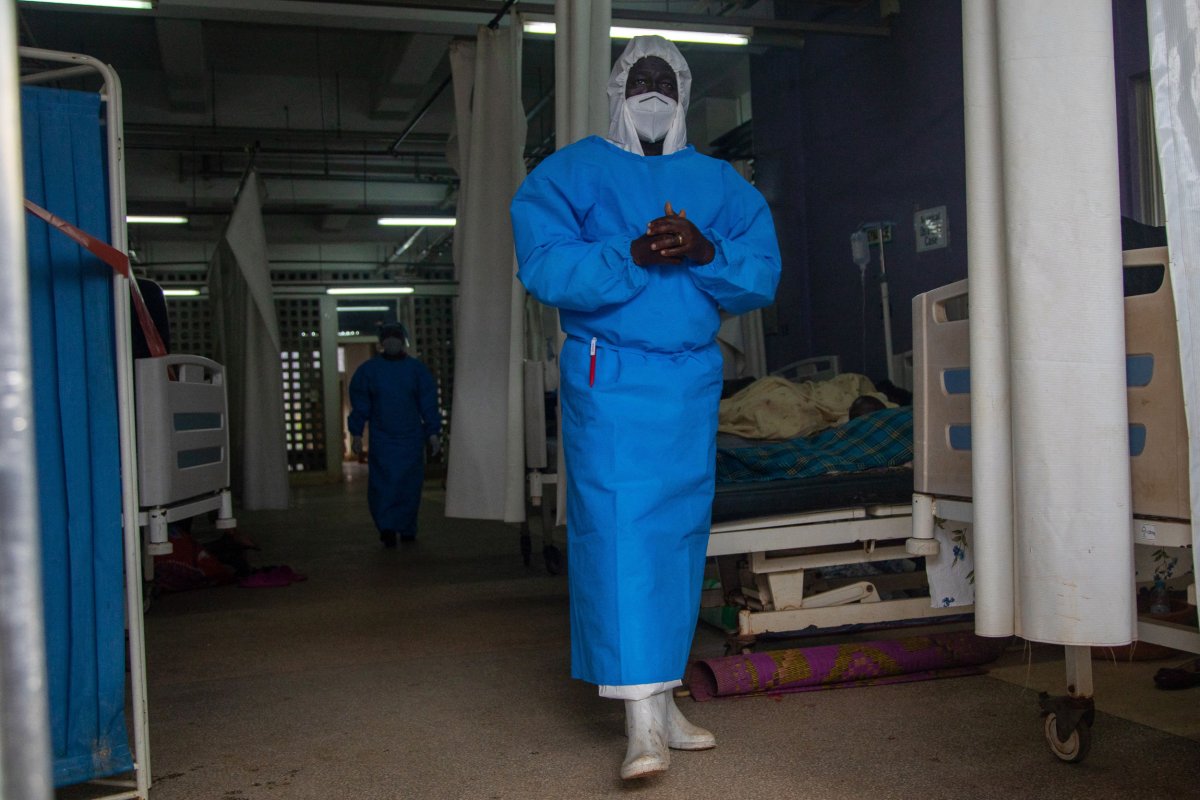An outbreak of Ebola disease in Uganda is a result of Sudan virus, the World Health Organization (WHO) has confirmed.
Samples from a patient in the Mubende district of central Uganda tested positive for Sudan virus on September 20, and as of September 25, there have been 18 confirmed cases.
A further 18 probable cases have been reported, and 23 deaths. Five of these deaths occurred in people who were confirmed cases.
First discovered in 1976 near the Ebola River in the Democratic Republic of Congo, Ebola, or Ebola Virus Disease (EVD) is caused by a number of different viruses, usually found in sub-Saharan Africa, according to the Centers for Disease Control and Prevention (CDC).

The viruses that cause EVD include Ebola virus (Zaire ebolavirus), Sudan virus (Sudan ebolavirus), Taï Forest virus, Bundibugyo virus, Reston virus and Bombali virus. However, only four of these cause disease in humans, with Reston virus only having been observed to cause disease in non-human primates and pigs, and Bombali virus only having been identified in bats thus far.
This current outbreak marks the first Ebola disease outbreak caused by Sudan virus in Uganda since 2012, and the first outbreak with over one case since 2004.
Where does Ebola come from?
Scientists are not sure where Ebola viruses came from but believe they originated in animals. According to the CDC, fruit bats or non-human primates are the most likely source of the disease, based on the origins of similar viruses.
Ebola is spread via direct contact with blood, bodily fluids or other tissues of someone who is sick or has died of the disease. The virus may enter the body through broken skin or mucous membranes in the eyes, nose or mouth, as well as via sexual contact.
Symptoms
Around 10 days after first contracting an Ebola viral infection, the CDC state that a patient will first experience fevers, fatigue and aches, followed by "wet" symptoms including diarrhea and vomiting, as well as hemorrhaging, bleeding or bruising.
According to the WHO, the average fatality rate of Ebola disease is around 50 percent, but in previous outbreaks, fatality rates have varied from 25 to 90 percent.
What is Sudan Virus?
Sudan Virus, one of the viruses that cause Ebola disease, has seen seven outbreaks since it was first discovered in the 1970s, four of which were in Uganda, and three in Sudan. According to the WHO, fatality rates of Sudan virus ranged between 41 percent to 100 percent in past outbreaks.
Is there a cure?
While there is no "cure" for Ebola, there are vaccines that can be administered to protect against the virus. The Ebola vaccine rVSV-ZEBOV was approved by the FDA in 2019 but only protects against Zaire ebolavirus, or Ebola virus proper, not any of the other three human-contracted Ebola-causing viruses. There is no current vaccine available for Sudan virus, and, according to the WHO, the rVSV-ZEBOV vaccine "will not provide cross-protection against the Sudan virus disease."
There are other forms of treatment available, including monoclonal antibody treatments Inmazeb and Ebanga, which stop the virus from replicating after it has infected a person by binding to glycoproteins on the Ebola virus' surface and stopping it entering cells. However, again, neither of these treatments have been evaluated for efficacy against variants other than Zaire ebolavirus.
According to the WHO, the first confirmed case of this current outbreak was a 24-year-old male who experienced symptoms including "high-grade fever, tonic convulsions, blood-stained vomit and diarrhea, loss of appetite, pain while swallowing, chest pain, dry cough and bleeding in the eyes". One day after he tested positive for Sudan virus, he died.
Uncommon Knowledge
Newsweek is committed to challenging conventional wisdom and finding connections in the search for common ground.
Newsweek is committed to challenging conventional wisdom and finding connections in the search for common ground.
About the writer
Jess Thomson is a Newsweek Science Reporter based in London UK. Her focus is reporting on science, technology and healthcare. ... Read more
To read how Newsweek uses AI as a newsroom tool, Click here.






